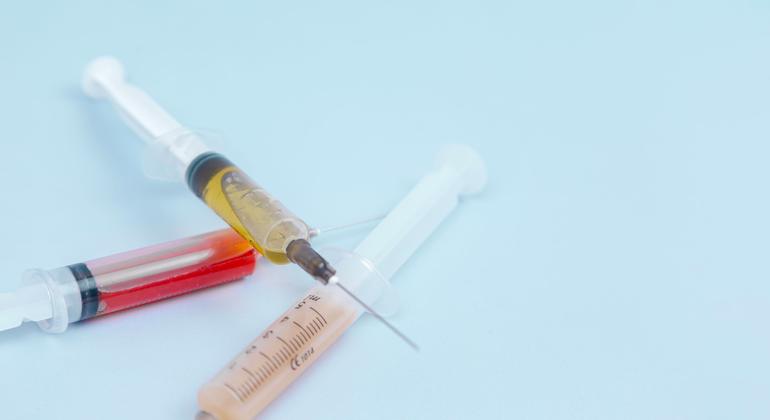WHO prequalifies first automated test kit for hepatitis C virus


The OraQuick HCV Self-Test “can provide vital support in expanding access for testing and diagnosis,” WHO say in a press release
This kit is manufactured by OraSure Technologies and is an expanded version of the OraQuick® Rapid HCV Antibody Test, which was originally pre-approved by the WHO in 2017 for professional use.
Prequalification by the UN health agency helps ensure that medicines supplied by international procurement agencies meet acceptable standards of quality, safety and efficacy.
“Adding this product to the WHO pre-qualification list is a safe and effective way to expand HCV testing and treatment services, ensure more people receive the diagnosis and treatment they need, and ultimately contribute to the global goal of eliminating HCV“, said Dr. Meg Doherty, Director of the Global HIV, Hepatitis and STI Program Division.
Bloodborne viruses
Hepatitis C attacks the liver and can cause acute and chronic, life-threatening disease.
The disease is spread through contact with infected blood, including sharing needles or syringes, unscreened blood transfusions, and sexual contact that results in blood exposure.
About 50 million people are chronically infected with the hepatitis C viruswith about one million new infections occurring each year, According to WHO.
The United Nations agency estimates that about 242,000 people will die from hepatitis C in 2022, mainly from cirrhosis and hepatocellular carcinoma or primary liver cancer.
WHO recommends self-testing in 2021 to complement existing testing services, based on evidence that it increases access and uptake of services, especially among people who may not otherwise be tested for the virus.
Expand testing and treatment
Dr Doherty said 3,500 people die every day from viral hepatitis.
Furthermore, “of the 50 million people living with hepatitis C, only 36 percent will be diagnosed and 20 percent will be cured by the end of 2022.”
“Having a WHO-prequalified HCV self-test enables low- and middle-income countries to access safe and affordable self-testing options, which is essential to achieving the goal of diagnosing 90% of people with HCV,” added Dr Rogério Gaspar, Director of WHO’s Department of Regulatory Affairs and Prequalification.
WHO said it will continue to evaluate additional HCV self-testing, along with other measures, including working with communities to expand the options available to all countries.


